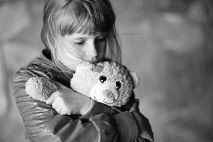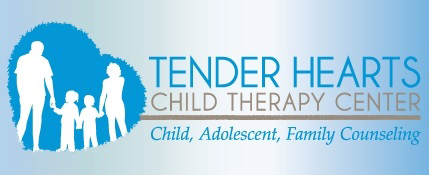Tips to Ease the Pain of Childhood Grief
 When a loved one dies, parents are often confused about how to help their kids cope with childhood grief. Often, parents are busy working through their own grief or dealing with the “business side” of death such as making funeral arrangements and sifting through the lost loved ones belongings. In such cases, childhood grief sometimes goes unnoticed when a family is dealing with the death of a loved one. Left unchecked, childhood grief can quickly impact other areas of your child’s life.
When a loved one dies, parents are often confused about how to help their kids cope with childhood grief. Often, parents are busy working through their own grief or dealing with the “business side” of death such as making funeral arrangements and sifting through the lost loved ones belongings. In such cases, childhood grief sometimes goes unnoticed when a family is dealing with the death of a loved one. Left unchecked, childhood grief can quickly impact other areas of your child’s life.
How much kids can understand about death largely depends on their age, life experiences, and personality. Be honest with your kids about death and encourage questions. This may be difficult for you because you may not have all of the answers. Sharing your spiritual beliefs about death with your kids is a good place to start if your children have questions about what happens after someone dies. It’s important to keep open lines of communication with your children when dealing with the loss of a loved one and trying to manage childhood grief. Let them know that there is no right way or wrong way to feel and your child will be able to deal with childhood grief in more healthy, appropriate ways.
Explaining Death in a Child’s Terms
A child’s ability to understand death and process their childhood grief — and your approach to discussing it — will be different based on your child’s age. Regardless of your child’s age, avoid using “soft terms” when telling your kids that a loved one died. Avoid using phrases such as “went away” or “went to sleep” or that your family “lost” the person. Using these terms is more likely to cause undue anxiety for your children and cause childhood grief to worsen. It may cause your child to be afraid of going to sleep or afraid to be separated from family for fear of dying. Communicate this expectation with your family as well. Explain to your child’s other caregivers that you’re using specific language (“dead” or “dying”) with your child and your reasoning for doing so.
Each child is unique, but here are some rough guidelines to keep in mind when addressing childhood grief.
Children younger than 5-6 years old
- Children younger than 5-6 years old view their world very literally. Explain death in basic and concrete terms. Explain that “dead” and “dying” mean that a person’s body stopped working. If the loved one was ill or elderly, try explaining to your child that the person’s body wasn’t working anymore and the doctors couldn’t fix it. If your loved one dies suddenly, like in an accident, explain that what happened caused your loved one’s body to stop working.
- Kids this young often have a hard time understanding that all people and living things eventually die. They have a difficult time understanding that death is final and the loved one won’t come back. Keep this in mind. Even after you’ve explained to your child that your loved one isn’t coming back, he/she may continue asking where your loved one is or when the person is returning. This can be frustrating and emotionally draining for you, but continue to calmly explain that the person can’t come back in concrete terms.
- Remember that kids’ questions may sound much deeper than they actually are. If your 5-year-old asks where someone who died is now, he is probably not asking whether there’s an afterlife. Instead, he might be satisfied hearing that someone who died is now in the cemetery or something similar.
Children ages 6-10
- Children in this age range can start to grasp the finality of death, even if they don’t understand that it will happen to every living thing one day. A 9-year-old might think that by behaving or making a wish, grandma won’t die.
- Children this age frequently personify death and think of it as the “boogeyman” or a ghost or a skeleton.
- It’s best to explain death with accurate, simple, clear, and honest explanations about what happened.
Children 10 and older
- The older children grow, the more they start to understand that every human being eventually dies, regardless of grades, behavior, wishes, or anything they try to do.
- Older children often have questions about mortality and vulnerability. For example, if your 16-year-old’s friend dies in a car accident, your teen might be reluctant to get behind the wheel or even ride in a car for awhile. The best way to respond to childhood grief is to empathize about how frightening and sad this accident was. It’s also a good time to remind your teen about ways to stay safe and healthy, like never getting in a car with a driver who has been drinking and always wearing a seatbelt.
- Teens tend to search more for meaning in the death of a loved one. A teen who asks why someone had to die probably isn’t looking for literal answers, but starting to explore the idea of the meaning of life.
- Teens suffering from childhood grief sometimes experience some guilt, particularly if one of their peers died.
- Whatever your teen is experiencing, the best thing you can do is to encourage the expression and sharing of grief.
Mourning the Loss
Should you take your children to the funeral? The best answer is largely up to you, your child, and your family’s beliefs. It’s healthy to allow your children to take part in any mourning ritual, if they want to. If you do decide to take your children to a funeral, be sure to explain what happens at a funeral so that your children are prepared ahead of time.
- Tell young children that the body of the person who died is going to be in a casket and the person won’t be able to talk or see or hear anything.
- Explain to young children that some people there will be speaking about the person who died and that some people may be crying.
- If you think your own grief might prevent you from helping your child during the funeral, ask a friend or family member to care for and focus on your child during the service. Choose someone you both like and trust who won’t mind leaving the funeral if your child wants to go.
- Many parents worry about letting their kids witness their own grief, pain, and tears about a death. Don’t. Allowing your child to see your pain shows that crying is a natural reaction to emotional pain and loss. And it can make kids more comfortable sharing their feelings and dealing with their childhood grief. But it’s also important to convey that no matter how sad you may feel, you’ll still be able to care for your family and make your child feel safe.
It’s important for parents to watch for any signs that kids need help coping with childhood grief. If your child’s behavior changes radically and you notice signs of childhood grief, you may need to seek help from a professional. Child Counselors at Tender Hearts are trained in providing support for children experiencing the loss of a loved one. Child Counseling can help your child process the loss of their loved one and cope with childhood grief in a safe, professional and supportive environment. Contact us today to learn more.





